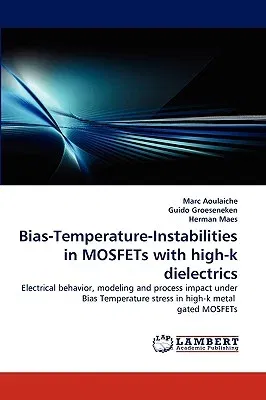Marc Aoulaiche
(Author)Bias-Temperature-Instabilities in Mosfets with High-K DielectricsPaperback, 22 June 2010

Qty
1
Turbo
Ships in 2 - 3 days
In Stock
Free Delivery
Cash on Delivery
15 Days
Free Returns
Secure Checkout
Print Length
224 pages
Language
English
Publisher
LAP Lambert Academic Publishing
Date Published
22 Jun 2010
ISBN-10
383836404X
ISBN-13
9783838364049
Description
Product Details
Book Format:
Paperback
Country of Origin:
US
Date Published:
22 June 2010
Dimensions:
22.86 x
15.24 x
1.3 cm
ISBN-10:
383836404X
ISBN-13:
9783838364049
Language:
English
Location:
Saarbrucken
Pages:
224
Publisher:
Weight:
335.66 gm

